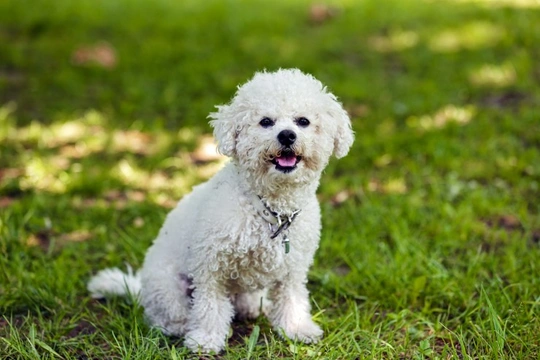
Is a Bichon Frise the right dog for you?
There are a great many small, white and fluffy dog breeds that are very popular in the UK today-so much so, that unless you own one or know a lot about dogs, it can be hard to tell the different breeds and types apart. One of the most popular of all of them is the Bichon Frise-a lively and personable little dog that is popular with people from all walks of life.
They are registered with the Kennel Club in the toy group-small dog breeds that do not have a particular working history, and that became popular as pets and lap dogs. However, there is more to the Bichon than simply being a pampered handbag dog-their small sizes disguise big personalities and a lot of pluck.
If you are looking for a small dog breed and are considering buying or adopting a Bichon Frise, in this article we will look at some of the breed’s core traits and highlights, to help you to make a decision. Read on to learn more.
Their small size makes them versatile
The Bichon is one of the most petite dog breeds, averaging a weight between 3-5kg-or about the weight of a cat! This means that they can live happily in smaller homes, including apartments, although there is no reason why you can’t own a Bichon in a bigger house either, of course!
They are very affectionate and loving
The Bichon Frise is a very affectionate breed that loves the company of people, and wears their hearts on their sleeves. They may be slightly reticent when meeting strangers for the first time, but are rarely shy, and soon warm up to newcomers who give them some attention.
However, they don’t thrive if left alone for long periods of time, and do also tend to suffer from separation anxiety if they are not used to spending time alone. Good training and management when the dog is young, and getting them used to their own company-as well as not leaving them alone for long periods of time-is essential.
They don’t shed much hair-but do need regular grooming
One of the reasons why the Bichon Frise is so popular is because they shed little to no loose hair, and don’t go through seasonal moults like most other breeds do. This trait is shared with many other breeds, including the poodle, which makes them popular with people who may be prone to suffering from pet allergies, as they are less apt to spread dander about the house.
However, the Bichon Frise’s coat does not take care of itself-they need to be brushed and combed regularly, and be bathed and groomed every couple of months, which may include shaping and trimming the coat.
They are bold for their size
Despite their small sizes, the Bichon Frise tends to be a bold and plucky dog, which will not be afraid to get into the thick of it with others in the dog park! They tend to be very sociable with other dogs and always ready for a game, but they may be a little speculative or wary if not properly socialised from a young age.
They don’t tend to be at the bottom of the pile in terms of pack structure either, and can be rather bossy!
They are active and lively
Although the Bichon Frise is a toy dog breed, they have surprisingly high energy levels, and are very playful-meaning that they need lots of walks and entertainment. Due to their small size, this is best divided into several short walks each day rather than one long one, as well as plenty of play and stimulation throughout the day too.
Bichons need lots of toys and things to play with and engage with, and they tend to get bored easily.
They are alert and watchful
Whilst the Bichon Frise is not a guard dog and unlikely to defend your property against a burglary, they are very alert and watchful, and will tend to let you know if someone is coming or hanging around.
They will probably make a fuss and bark at the postman or the doorbell, and spend a lot of time looking out of the window to see what’s going on.
They are smart and can learn tricks!
Whilst the Bichon Frise breed don’t strictly have a working history, during the heyday of the circus, they were one of the breeds most likely to be seen performing in the ring. This is due to both their cute appearance and high energy levels, as well as their high intelligence, which makes them easy to train.
Bichons love having something to do and think about, and can be taught a wide range of tricks and complex commands, and retain them for the long-term if their skills are refreshed regularly.
They are entertaining, and natural performers, so if you want a dog that you can teach to perform tricks to show off their skills and entertain, this may be the breed for you.



